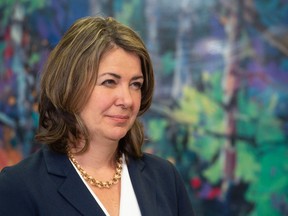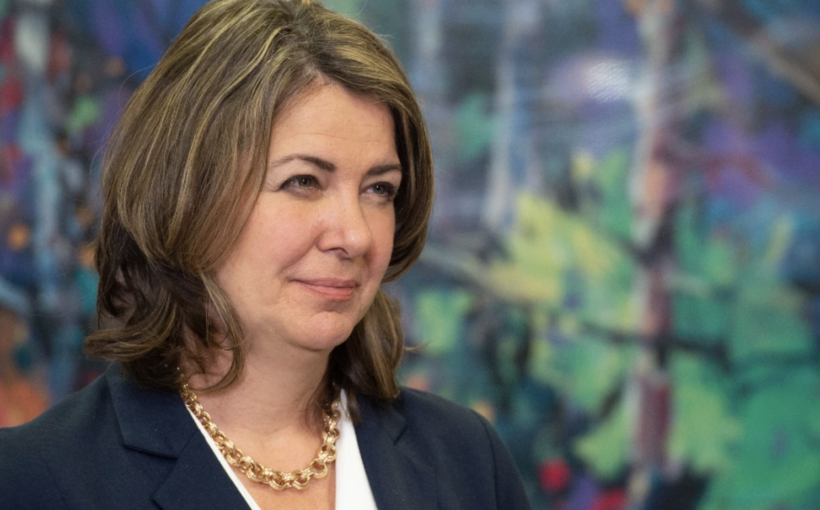
Arsenic, dissolved heavy metals and hydrocarbons began leaking in May 2022 from the operation, located about 70 kilometres north of Fort McMurray. A second spill of 5.3 million litres of wastewater was released from a tailings pond on Feb. 6.
At an unrelated announcement Monday, Smith told reporters the Alberta government didn’t need to inform the Northwest Territories about the leak under the terms of a 2015 agreement because the seepage didn’t reach tributaries or drinking water.
Still, Smith said it’s “unfortunate” the First Nations and Northwest Territories weren’t quickly informed, and that Imperial Oil could have headed off unnecessary worry and “misinformation” that drinking water was at risk.
The AER’s order notes that the impacted area is in proximity to tributaries that feed the Firebag and Muskeg rivers, but the regulator has insisted there has been no evidence of harm to wildlife.
In a statement Monday, the AER said it continues to oversee Imperial Oil’s containment work and is meeting directly with Indigenous communities.
‘The premier should be embarrassed’: Notley
Speaking to reporters in the legislature Monday, NDP Opposition Leader Rachel Notley said it is “utterly irresponsible and ridiculous” to suggest the government had no obligation to notify stakeholders, including treaty rights holders.
“We have not contracted out the basic function of monitoring and keeping people in our community safe to anyone in the oil and gas industry, and the premier should be embarrassed by that statement. She should be holding people in this government responsible for that fundamental failure,” said Notley.
In a statement earlier Monday, Imperial Oil said based on its own monitoring, the seepage has not entered any waterways, there have been no impacts to local drinking water, and it appears that there has been no impact to wildlife.
Simon Younger, senior vice-president of upstream at Imperial, offered his “deepest apologies” for the leaks.
“Cleanup is well advanced, and we are taking all necessary steps to prevent this from happening again,” Younger said.
Last week, Athabasca Chipewyan First Nation (ACFN) Chief Allan Adam said representatives of the ACFN and Imperial Oil had met several times regarding unrelated matters while the seepage was occurring, but the oil company said nothing.
The ACFN has warned community members not to eat any meat or plants harvested downstream from Kearl since May 2022. The Mikisew Cree First Nation has called for an independent review into the AER’s oversight, saying the provincial regulator failed to do its job.
Drew Yewchuk of the University of Calgary’s Public Interest Law Clinic is asking the province’s information commissioner to investigate how and why the AER chose not to release information on the leak, despite direction in the Freedom of Information and Protection of Privacy Act to do so.
“There’s no way this is not going impact wildlife or human life.”



